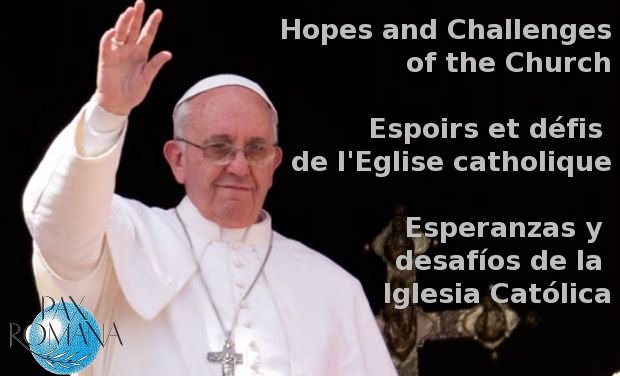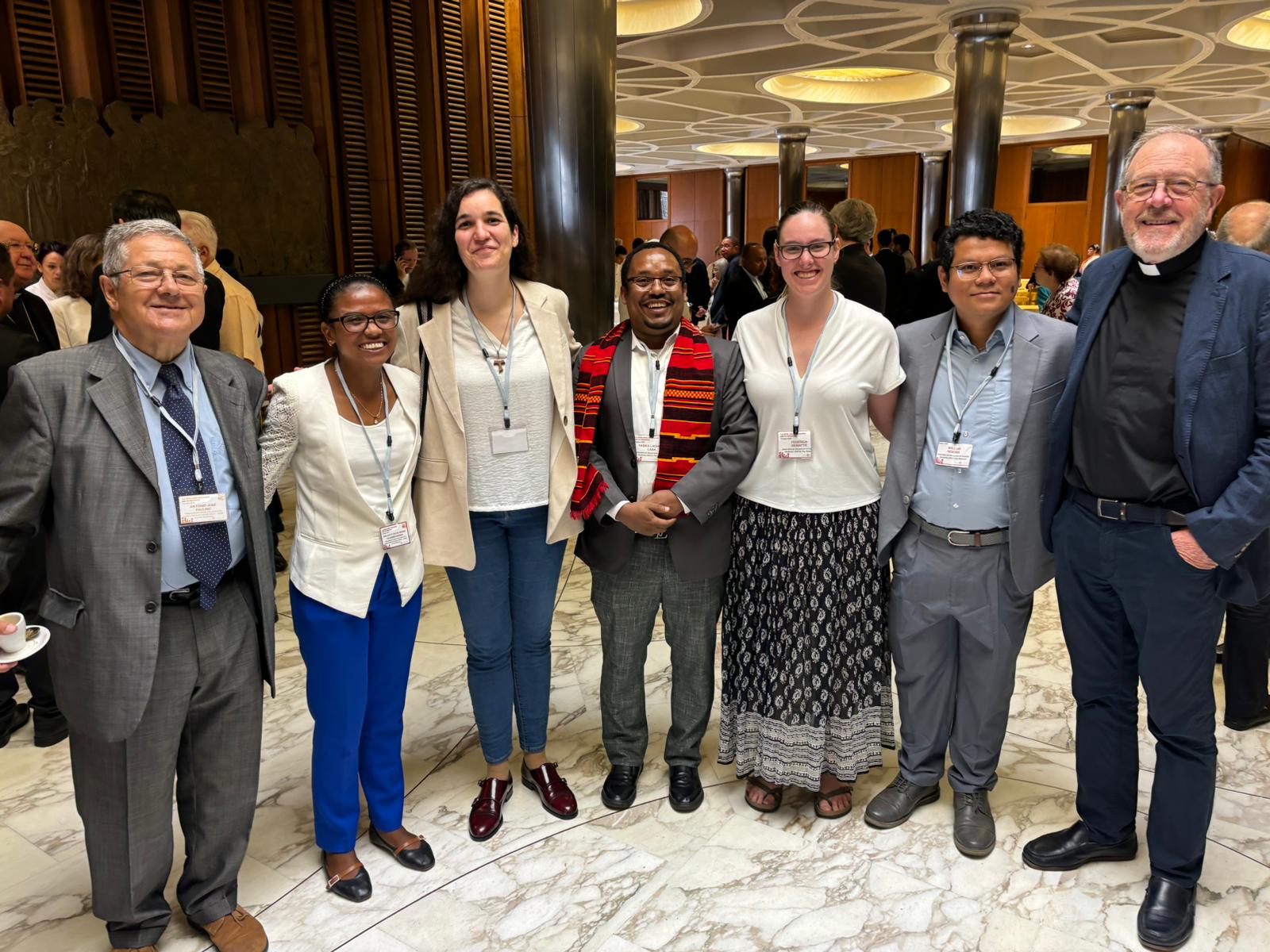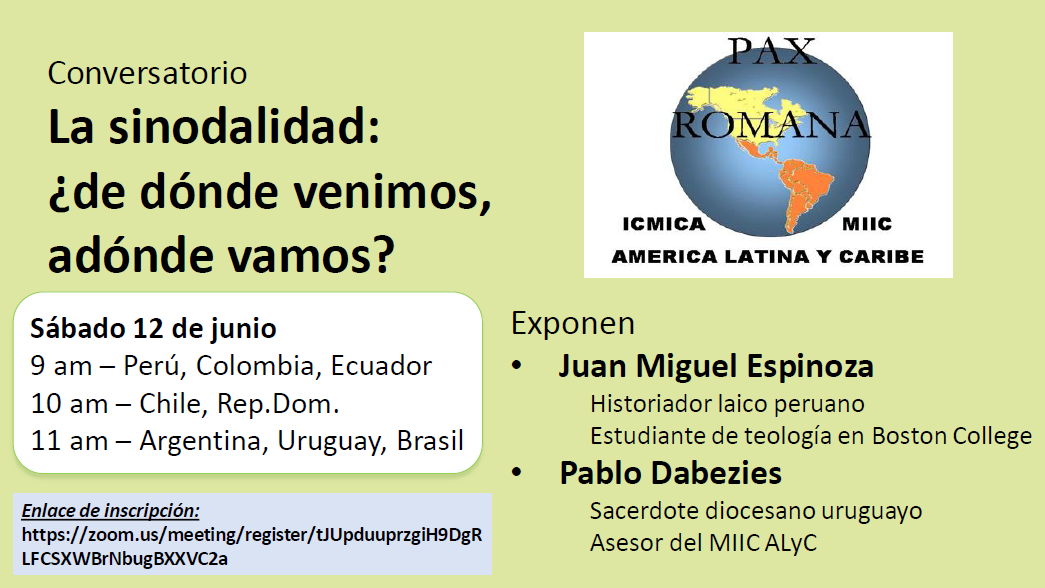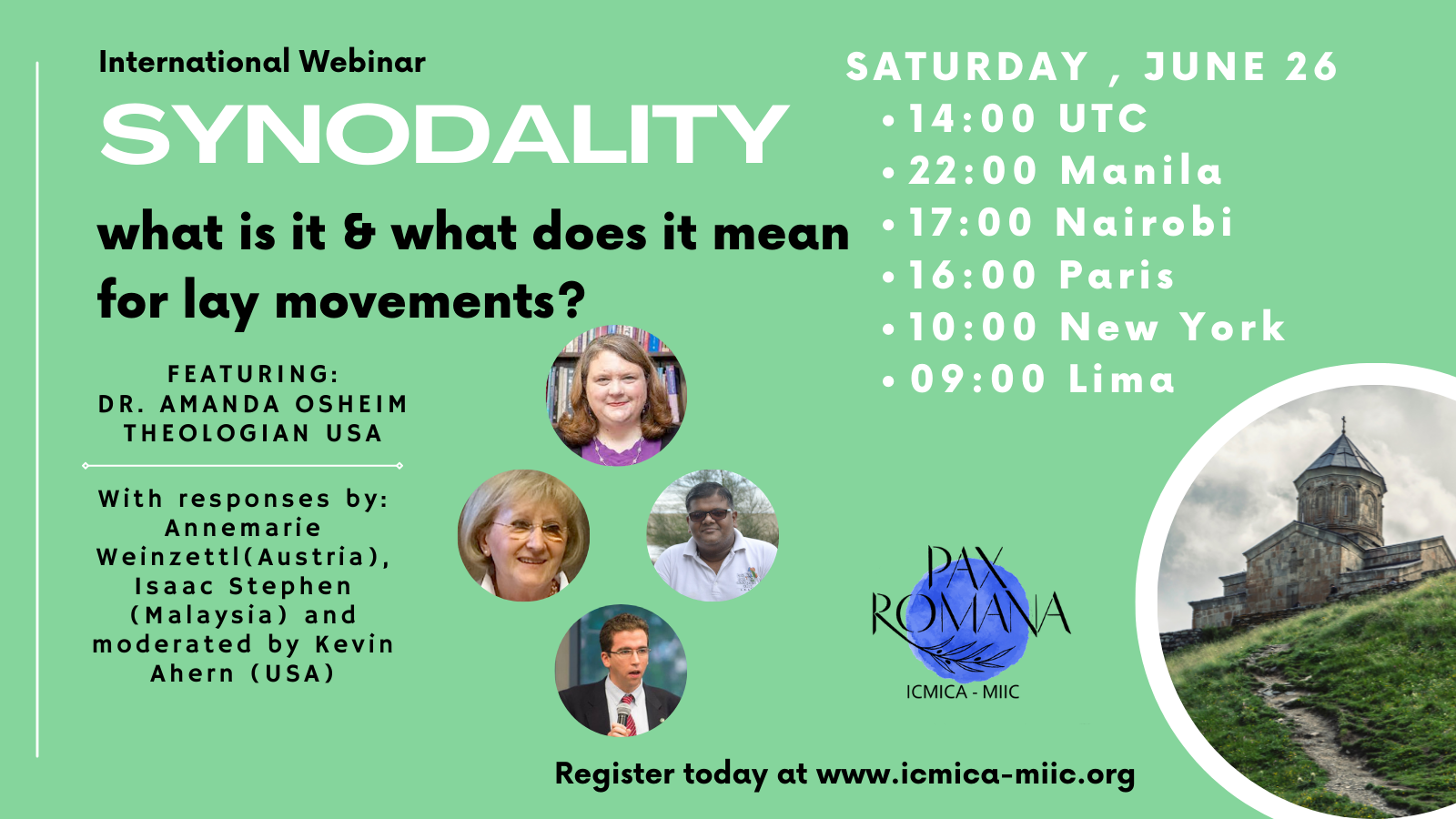 “Hopes and Challenges for a Prophetic Church”[1]
“Hopes and Challenges for a Prophetic Church”[1]
In response to the prophetic call for renewal initiated by Pope Francis, the International Catholic Movement for Intellectual and Cultural Affairs (ICMICA-Pax Romana) prepared a questionnaire: “Hopes and Challenges of the Church.” This questionnaire was distributed to our national member organizations in English, Spanish, German and French. Many of the replies that we received were the summary of consultations by our movements at the local and national level. The responses served as a basis for the discussions of the 2013 ICMICA International Council Meeting and Study Session in Boston on the theme of “Prophets on the Borders: The Challenge of Evangelization Today.”
The following document is a synthesis of responses to that questionnaire along with several points of analysis that emerged at the Boston Study Session. In analyzing the responses from our members, we were struck by many common challenges and hopes that are shared by Catholic professionals and intellectuals across the world.
This synthesis of our members’ concerns will be used as a guiding document to help the ICMICA council develop its action plan for the following years. ICMICA sees this survey as an opportunity and tool to further engage with people who are poor and marginalized. We encourage our members to use this document as the basis for further reflection and we welcome all input on our Website and Facebook page to keep the dialogue active.
A. Hopes and Challenges of the Church
The following are key areas identified as sources of hope where more attention is needed in light of the church’s Evangelical vocation:
– Commitment and witness to justice within the church and in the church’s relationship in the world. The option for the poor remains a central element of this commitment.
– A spirituality that integrates faith and action. In other words, coherence between church teaching (Scripture, words, theology, Catholic social teaching, etc.) and lived action (charity, advocacy, liturgy, etc.).
– A dialogical approach to those outside the visible Roman Catholic Church (inter-religious, ecumenical, and intercultural-dialogue). This commitment is particularly important in the face of what Pope Francis has called the “globalization of indifference.” There is an urgent need for Catholics to find ways of cooperating with others for social transformation.
– The recognition of the church as the people of God, which calls forth the active participation and co-responsibility of the laity and all the baptized throughout the life of the church.
– Women are a source of hope for our church. A deeper analysis on the role of women in the church, as Pope Francis has indicated, is a major challenge for the present and future of the church.
– Special attention to the role of youth and young professions as both the future of the church and the young church of today. Greater support for youth and youth movements is a major challenge.
B. A Prophetic Church
In response to these hopes and challenges, we see three areas where the church as a whole can be more prophetic:
– Style: A collegial and prophetic “style” that reflects (as Pope Francis has affirmed) the church’s vocation to be a church of the poor. This style forms the church not simply an institution but as a community (communion) that reflects the virtues of humility, hope, justice, austerity, sincerity, and openness.
– Structural renewal: Structural reforms, as already begun by Pope Francis, will go a long way for our institutions to be placed at the service of our Evangelical mission. These include efforts at all levels of church (including lay organizations) to encourage structures that are communal, collegial, transparent ethical and inclusive of different voices within the community.The principles of subsidiarity and solidarity can help to ensure that the diverse concerns of Catholics at the local level are included.
– Prophetic position: Rather than retreating from the challenges facing the world, the church is called, in the words and witness of Pope Francis to be “at the borders” (frontiers) as a sign of hope in the face of individualism, fundamentalism, idolatry, and injustice.
C. The Call of Pax Romana to be More Prophetic
Given these hopes and challenges, Pax Romana is also challenged to be more prophetic in the following ways:
– Announcing Jesus Christ by actions and words that are relevant to the world we live in, especially on the borders and margins of society informed by a universal (catholic) dimension.
– Denouncing injustices and human rights violations. This includes supporting those who have been victims of injustice and uncovering the root causes of the violence.
– Being a voice and witness inside of the Church to the collegial and prophetic style mentioned above.
– Proposing and guiding the reflection and actions of our members and non-members to live out their Christian faith more fully in light of the commitments to the preferential option for the poor, social justice, transparency, humility, dialogue, and the fundamental insights emerging from the teachings of Scripture and the Second Vatican Council.
– Being an active and visible presence in the church and in the world in a way that seeks to place into dialogue the Gospel with culture, science, and politics.
– Supporting training of leaders for our mission in the world with special attention to young professionals.
– Proposing ways and means to develop and strengthen communication and networking inside the movement and with groups of interest outside.
|
Appendix: The Survey Form
|
[1] A report prepared by the 2013 ICMICA International Council.
Here are the results written in english. For the results coming out of other languages, change the website language with the flag on the left part of the home page.





Leave A Comment
You must be logged in to post a comment.